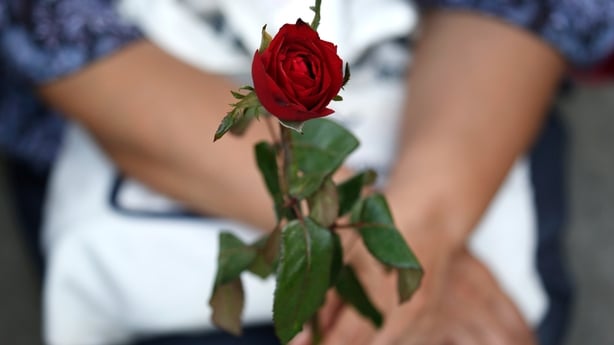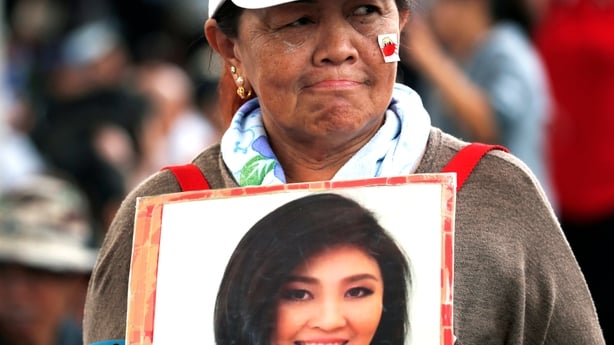An arrest warrant has been issued for former Thailand prime minister Yingluck Shinawatra after she failed to turn up for the verdict in a negligence trial.
Sources close to her said she has fled the country.
"She has definitely left Thailand," one of the sources, who is also a member of the Shinawatra's Puea Thai Party, told Reuters.
He declined to be named because he was not authorised to speak on behalf of Ms Yingluck.
Another source also confirmed that she had gone.
Ms Yingluck, 50, whose family has dominated Thai politics for more than 15 years, faces up to ten years in prison if found guilty in a case centred on the multi-billion dollar losses incurred by a rice subsidy scheme for farmers.
She claimed an ear problem prevented her from attending the hearing, but the Supreme Court did not accept the excuse and issued an arrest warrant.
"It is possible that she has fled already," Deputy Prime Minister Prawit Wongsuwan told reporters as he left a meeting in Bangkok.
He had earlier said only that he had no confirmation of her whereabouts.
Ms Yingluck's lawyer, Norrawit Lalaeng, said her team had told him this morning she had an "ear fluid imbalance" and could not attend court.
He said he was unaware whether she was still in the country. Her spokeswoman declined to comment.
"We think that the defendant is hiding or has fled," a statement from a Supreme Court judge said.
Ms Yingluck's brother Thaksin Shinawatra, who heads the political family, was overthrown in a 2006 coup and fled into exile to escape corruption charges that he said were aimed at demolishing the populist movement he founded.
That movement, pitted against a Bangkok-centered royalist and pro-military elite, has been at the heart of years of turmoil.
The verdict against Ms Yingluck is widely seen as having the potential to reignite tensions, though the junta has largely snuffed out open opposition.
Ms Yingluck last commented on social media yesterday, saying on her Facebook page that she would not be able to meet supporters at court because of security measures.
The doors of her home were shut and local media said there had been no movement there since the early morning.
Hundreds of her supporters had gathered outside the court today where around 4,000 police had been deployed and checkpoints had been set up. The trial has taken around two years and Ms Yingluck has shown up for previous hearings.

Under the rice subsidy programme, Ms Yingluck's administration paid farmers up to 50% more than market prices for their rice. The policy was popular with farmers but left Thailand with huge rice stockpiles and caused $8 billion in losses.
Ms Yingluck has said she was only in charge of coming up with the policy but not the day-to-day management of the scheme. Her administration was removed in a 2014 military coup.
In the northeastern province Khon Kaen, a Shinawatra stronghold, a leader of the red shirt political movement that supports Ms Yingluck said her supporters felt frustrated. Some had been preparing for protests against the verdict.
Shinawatra's Puea Thai Party has said it does not support acts of violence. Some supporters outside the court in Bangkok held roses while others wore white gloves with the word "love"on them.

The court is also due to rule in the separate case of Ms Yingluck's former commerce minister Boonsong Teriyapirom who is accused of falsifying government-to-government rice deals between Thailand and China in 2013.
Prime Minister Prayuth Chan-ocha, who led the 2014 coup against Ms Yingluck's government in the name of ending political turmoil, has promised that an election will be held next year.
Regardless of whether she is found guilty or innocent, Ms Yingluck will not be able to run in that election because she was banned from politics for five years in 2015 by the junta's legislature for alleged graft in the rice-purchasing programme.

